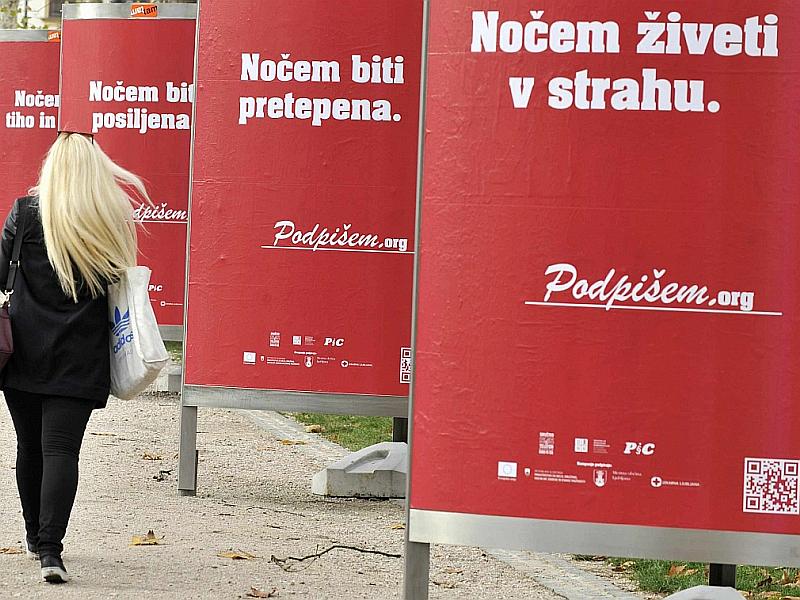
Today is the International Day for the Elimination of Violence against Women. A 16-day international action aimed at combating violence against women kicks off today also in Slovenia. A number of NGOs will prepare stands, leaflets and different promotional events in this period. The aim is to raise the awareness of citizens about violence against women.
The first nationwide report on domestic violence against women from 2010 showed that every second woman in Slovenia experiences some form of violence from her 15th year on. Psychological violence is the most frequent form while every fourth is physically abused.
Non-governmental organizations warn of the deteriorating status of victims of domestic violence. Katja Zabukovec Kerin, from the Association for Nonviolent Communication, says the miserable condition victims find themselves in is not only due to the poor economic state Slovenia is in, but also because of the poor work of the responsible institutions.
Zabukovec Kerin from the Association for Nonviolent Communication also warned at a press-conference that international initiatives aimed at combating violence against women have been taking place for 19 years now and that every year was a step forward. She added that one of the important revelations was the fact that women's human rights were being violated, and that it wasn't only physical violence, but also psychological, sexual and economic.
The state has to solve the cases
Counseling programs, the SOS telephone, the safe houses and crisis centers are seen as improvements in the field. We are slowly closing in on our goal, which is zero tolerance on violence against women, Zabukovec Kerin said. "However last year we made a step back," is how she commented all the recent developments. "The work practice with victims of violence is not good." Zabukovec Kerin warned that women are still met with doubt when they speak out about experiencing violence.
She gave a concrete example of the regression in dealing with the issue. "Provisions in the penalty code dealing with threats were silently changed." Before 2012 women who were threatened by their partners reported those threats to the police, which then took action. Today the police advises threatened victims to file a private suit. Zabukovec Kerin highlighted that it is very important for the state to solve those cases which the victim cannot.
Suzi Kvas from the Socio public institute warned of the lack of cooperation between competent organs. "Improved cooperation between the courts, police, social work centers and NGOs are necessary." She said that was the only way to fully help the victims and that women as victims were very vulnerable. "Women who are victims of violence usually don't have a well-developed social network. They don't have the support of their parents or relatives and are often unemployed," she added.
How are women represented?
The way women are presented in the media and on the market is also questionable. Katja Zabukovec Kerin says the problematic consequences of that kind of presentation can be seen at an early age."When we go to high schools, we see girls who try to find their inner power by becoming more sexual, because that's the message they get from commercials. And today that's the only power attributed to girls."
Today is the International Day for the Elimination of Violence against Women. A 16-day international action aimed at combating violence against women kicks off today also in Slovenia. A number of NGOs will prepare stands, leaflets and different promotional events in this period. The aim is to raise the awareness of citizens about violence against women.

































































